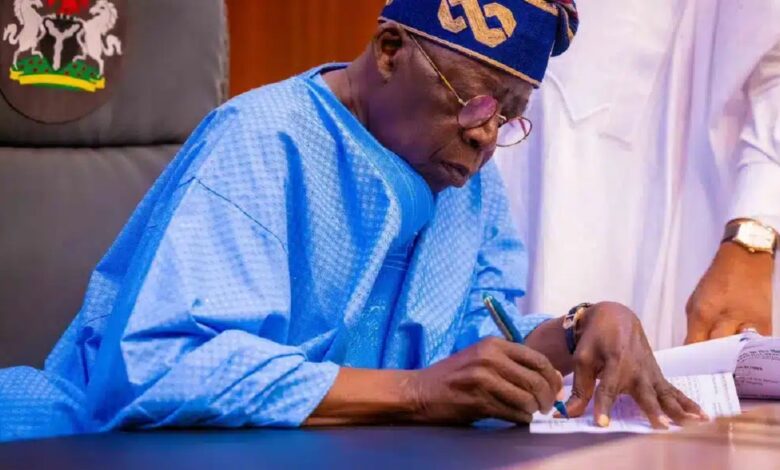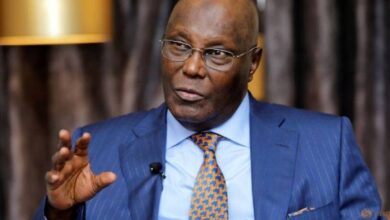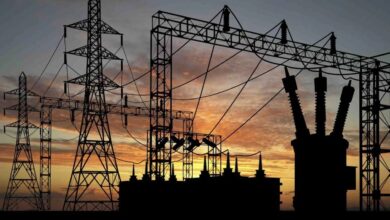Power Struggle: Pressure Mounts on Tinubu to Revoke Discos’ Licenses

Nigeria’s citizens are raising their voices, urging President Bola Ahmed Tinubu to address the persistent power outages by reevaluating the operational licenses of the nation’s electricity distribution companies (DisCos). The recent months have seen a drastic decline in power reliability, plunging daily life into chaos and disrupting businesses across the country.
The power sector’s challenges are not new; they span over a decade of post-privatization efforts that have yet to yield consistent electricity for consumers. From Lagos to Kaduna, the narrative remains the same: insufficient power supply is the norm, despite customers’ varying service levels.
The statistics paint a grim picture: nearly half of Nigeria’s population lacks access to electricity, positioning the country as one of the least electrified globally. Despite a theoretical capacity of 22,000 megawatts, actual power generation hovers between 4,000 and 5,000 megawatts—a figure that has recently dipped even lower.
The economic impact is staggering. The Manufacturers Association of Nigeria reports annual losses of N10.1 trillion due to the power crisis, nearly two percent of the nation’s GDP. The government’s efforts to address these issues have lacked transparency, with little progress made despite numerous promises and plans.
Minister of Power Adebayo Adelabu recently issued a warning to DisCos, threatening license revocation if the power supply continues to falter. He has called for patience as he seeks solutions to the energy dilemma. The government has made commitments, such as settling N2.6 trillion in debts to gas companies and addressing the costly electricity subsidies projected to reach N3 trillion in 2024.
Yet, six months into Minister Adelabu’s tenure, a clear policy direction for the power sector remains elusive. The cycle of unfulfilled promises persists, leaving Nigerians in the dark—both literally and figuratively.
In a candid conversation with DAILY POST, Professor Emeritus Wumi Iledare, Executive Director of the Emmanuel Egbogah Foundation, highlighted the systemic issues plaguing the power sector. He emphasized the need for policy consistency and institutional empowerment, advocating for a decentralized approach to energy governance that transcends individual personalities.
Professor Iledare argues that the focus should shift from transactional to transformational leadership within the energy sector. This would foster a culture where professionals are empowered to lead without undue political influence, paving the way for sustainable solutions to Nigeria’s energy crisis.
As the nation grapples with these challenges, the call for action grows louder. Nigerians demand not just light in their homes but also clarity and decisiveness from their leaders to power a brighter future.
“It is ill-advised to personalize the failure of power institutions in Nigeria. I’d rather suggest Nigeria’s energy institutions’ governance move away from being personality-focused. Personalizing the governance of an institution remains the primary issue at stake in the energy sector.
“Institutions must be empowered with a shared vision among apolitical team leaders and political appointees. When institutions are empowered, a transformational leadership mindset can be easily entrenched with a glaring awareness of the inevitability of the professional team leads.
“So far, the transactional leadership mindset hinders sustainable solutions to the energy crisis in Nigeria, in my opinion. Perhaps this is cultural.
“Under such transformational leadership scenarios, professionals in the energy sector institutions will be less subservient to political appointees without disrupting the transient political power.
“What I have observed in the power sector in Nigeria is the need for more policy continuity year after year from Bola Ige to Nnaji to Nebo, etc. Brilliant Ministers, yet no headways to power availability, affordability, accessibility, and adaptability because of policy summersault and transactional leadership mindset.
“At least the light is visible now at the end of the tunnel with the emerging power decentralization. The Federal Government needs to come true with full power decentralization. Licenses that are renewable come with new terms.
“The original restructuring was poorly conceptualized, and the ensuing power sector restructuring and privatization were technically and competitively delimited”, he told the DAILY POST.
On his part, the Nigerian Consumer Protection Network President, Kunle Olubiyo, said the persistent blackout meant the Government needed to declare a state of emergency in the sector.
He said a surgical procedural overhaul of the entire regulatory ecosystem will be needed for the sector to progress.
Olubiyo added that the Minister of Power should exit the Transition Electricity Market and allow forces of demand and supply to drive the power sector.
“Government should carry out a surgical procedural overhaul of the entire regulatory ecosystem. Government should as a matter of urgency wind down the Nigerian Bulk Electricity Trading Company Plc.
“Power Supply Agreement/ Power Purchase Agreement, PPA: Minister of Power should exit the Transition Electricity Market and allow the Market to become fully driven by demand and supply to put an end to the singularly buy electricity pool business modelling that negates the core value of competitive electricity market and undermines the desires of Nigeria to become globally competitive market.
“Government should put an end to payments for generation capacity that have always resulted in stranded generation payments.
“Legacy Debts and Post Privatisation Debts to Gas Producers and Generation Companies would not put an end to the vicious circle of mismatches/misalignments in market structure and business modelling.
“Government should allow the market forces and the interplay of demand and supply to determine the market value and prices of each unit of megawatts of electricity.
“The Government should encourage recapitulation of the equity stakeholding in the electricity business concerns upstream and downstream and unbundle the transmission company of Nigeria. It should further be broken into sub-regional hubs.
“With three distinctive features, commercial, technical and operational, the Government should complete the ongoing leadership overhaul of Nigeria’s transmission company. As a final solution, the Federal Government should declare a state of emergency in the power sector”, he said.
Similarly, Adetayo Adegbemle, Convener and Executive Director, PowerUp Nigeria, said the major problem facing the country’s power sector is liquidity or money.
He noted that electricity subsidies portend a serious challenge to the power sector because they encourage inefficiency.
Adegbemle contended that a replacement of the Minister of Power was necessary as he had not lived up to expectations.
He added that the sector lacked a visionary leader for the challenges.
“See, the bottom line of this issue is money. We have been running our power sector on debt, selling the same product on credit, and subsidizing the little we can work with.
“This has led to serious illiquidity problems, so much that we cannot pay the gas suppliers; you will recall that gas as fuel stock accounts for over 80 per cent of our power generation in Nigeria. Only recently, we paid $120 million out of $1.3 billion being owed to suppliers.
“We also have serious challenges with the subsidy we pay on electricity Tariff. This has encouraged inefficiency in our power sector.
“As I say, we need to understand that electricity is now business; it is a commodity with production cost and sales value that must be profitable for investors.
“Without adequately addressing this, the power sector continues to be in danger.
“Our transmission assets are also under attack, with fire incidents occurring all across the country. I say- hold the leadership of TCN responsible for this, and they will find a solution.
“Unfortunately, we have not been blessed with visionary leadership.
“We must be careful with the kind of overhaul we demand.
“Our problem is not a structural problem of the power sector but a human resource and capacity problem.
“Yes, I subscribe to the replacement of the Minister because the bulk of the power sector ends and starts on his “visionary policy leadership’, which he has been unable to display at any level.
“Even all his public statements have not been encouraging”, he told DAILY POST.
Another power sector expert, who preferred to be anonymously known as Engr Yesufu, said the country’s power sector is in a terrible state.
He, however, said if there is a change, it must be systemic.
He noted that the Government should pump in more money to sustain generation through targeted subsidies.
“The power situation is very bad, and any switch from existing to new will further compound the situation. The approach must be done systematically and patiently— immediate, short-term & and long-term.
“Year 0 to 3- The Government needs to pump in enough money to sustain generation through some targeted subsidy, either through gas or other payments, to reduce suffering for Nigerians, whose majority are passing through the Fuel & FX policy changes.
“In the immediate term, there must be ways to start restructuring the Discos via FGN and States to allow for more private involvement in promoting franchising or embedded generation existing models.
“Enhance TCN operations and investment- more generation promotion must be encouraged with policies and incentives to attract investors.
“Year 3 to 6- The subsidy in 1 above will start to be reduced, while the restructuring will move to implementation and removing any roadblocks. The PPI must have started to give the required dividend by more of its projects, impacting the Discos and TCN.
“Integrated power solutions should be encouraged with the right policy incentives. We also need articulate implementations’ at this stage that can ensure proper monitoring of the planned stages in place in the immediate term. The right fits should, at this time, have been identified and put in positions.
“Year 6 to 9- This stage will be more focused on making the electricity business rewarding and return on investment. The Government must ensure the plan it puts in place is working. If not, there might be some tweaking based on actual reality.
“The actual situation will determine if there is a sustained subsidy or a need to drastically reduce it. However, all push must be enhanced, and support for real project implementation must be driven by the private sector.
“Tariffs must cover all the value chains, and the Government should ensure the complete economy is making sense and start to look toward tax recovery to support the sector and others.
“Also, it should be noted that metering would have greatly improved for enhanced collection to support and reduce government intervention in the sector (if still in continuance).
“Let me stop here. The recovery process is very long, but it still needs government support to succeed”, he said.
Meanwhile, Chinedu Amah, the CEO of Spark Online, a sector investment forum, called for the outright removal of electricity subsidies to solve the country’s power sector challenges.
He said a sector shakeup must fix the fundamental problems to make a difference.
“The key thing is subsidy removal and a clear path to job creation through incentives for service providers and manufacturing.
“If you shake up without fixing the fundamentals, then we’d not have made a difference.
“We need to bring back the factories and introduce service providers who will employ more people”, he said.
Meanwhile, the Lead Director of the Centre for Social Justice, Eze Onyekpere, said the issue is beyond the revocation of Disco’s licenses.
He noted that the problem cuts across every value chain in the power sector, from generation and transmission to distribution.
“The point is that the Minister of Power with outpost respect to him is incompetent.
“It is not about revocating Disco’s licenses; the matter could be better managed to produce results. You set a benchmark for them. Those of them not meeting up, you sack them.
“Are we generating 10,000 megawatts and wheeling the 10MW, and is the problem now distribution? Rather, there is a problem with every value chain- Generation, Transmission and Distribution”, he said.




